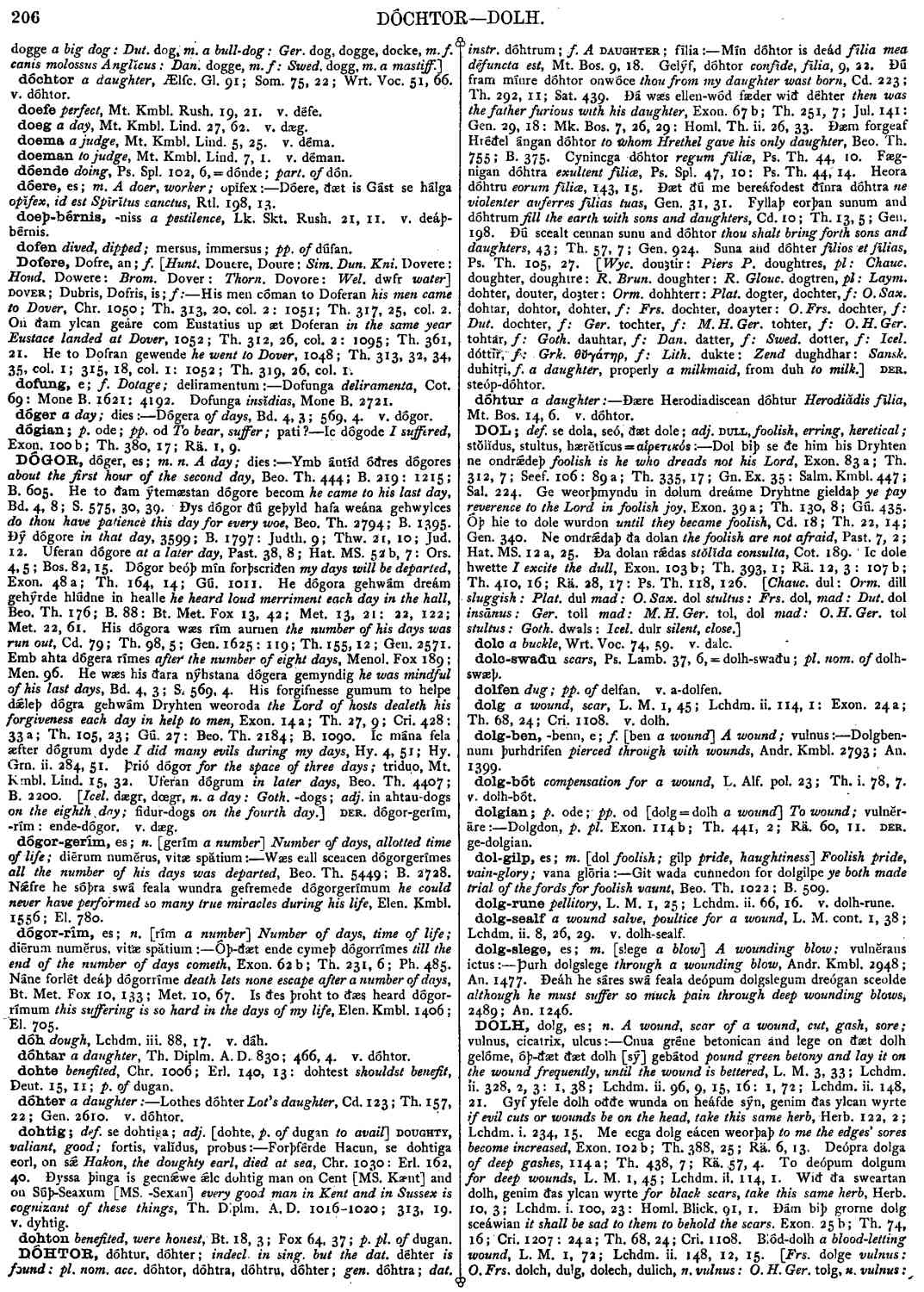DOL
- adjective
-
Dol biþ se ðe him his Dryhten ne ondrǽdeþ
foolish is he who dreads not his Lord,
- Exon. 83 a; Th. 312, 7; Seef. 106: 89 a; Th. 335, 17; Gn. Ex. 35: Salm. Kmbl. 447; Sal. 224.
-
Ge weorþmyndu in dolum dreáme Dryhtne gieldaþ
ye pay reverence to the Lord in foolish joy,
- Exon. 39 a; Th. 130, 8; Gú. 435.
-
Óþ hie to dole wurdon
until they became foolish,
- Cd. 18; Th. 22, 14; Gen. 340.
-
Ne ondrǽdaþ ða dolan
the foolish are not afraid,
- Past. 7, 2; Hat. MS. 12 a, 25.
-
Ða dolan rǽdas
stŏlĭda consulta,
- Cot. 189.
-
Ic dole hwette
I excite the dull,
- Exon. 103 b; Th. 393, 1; Rä. 12, 3: 107 b; Th. 410, 16; Rä. 28, 17: Ps. Th. 118, 126.
Bosworth, Joseph. “DOL.” In An Anglo-Saxon Dictionary Online, edited by Thomas Northcote Toller, Christ Sean, and Ondřej Tichy. Prague: Faculty of Arts, Charles University, 2014. https://bosworthtoller.com/7769.
Checked: 0